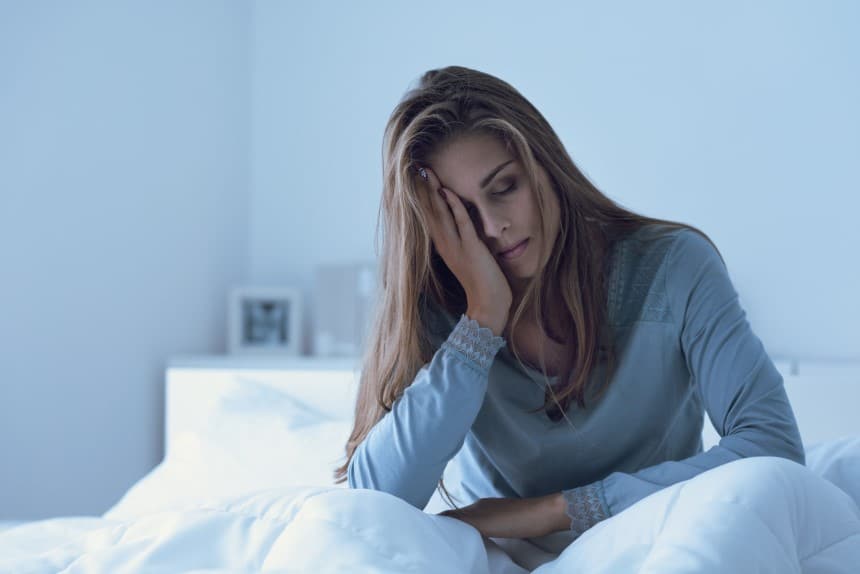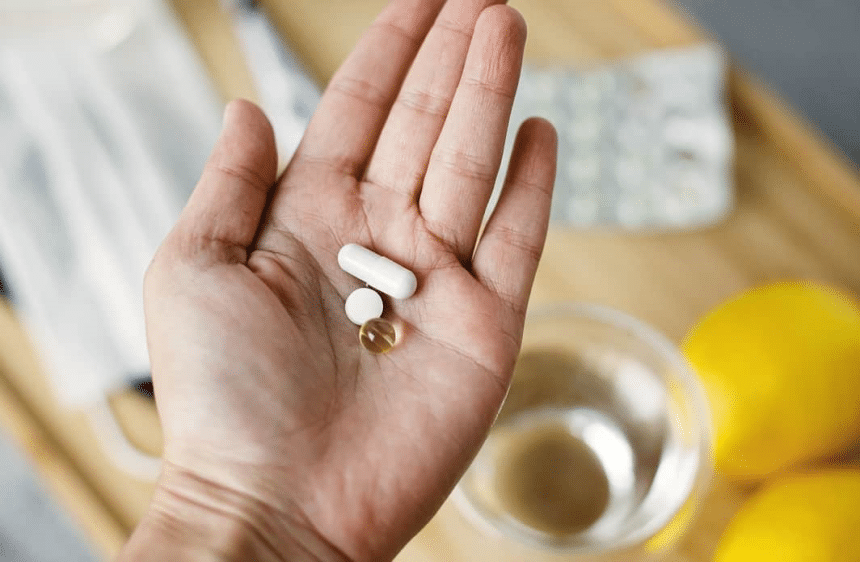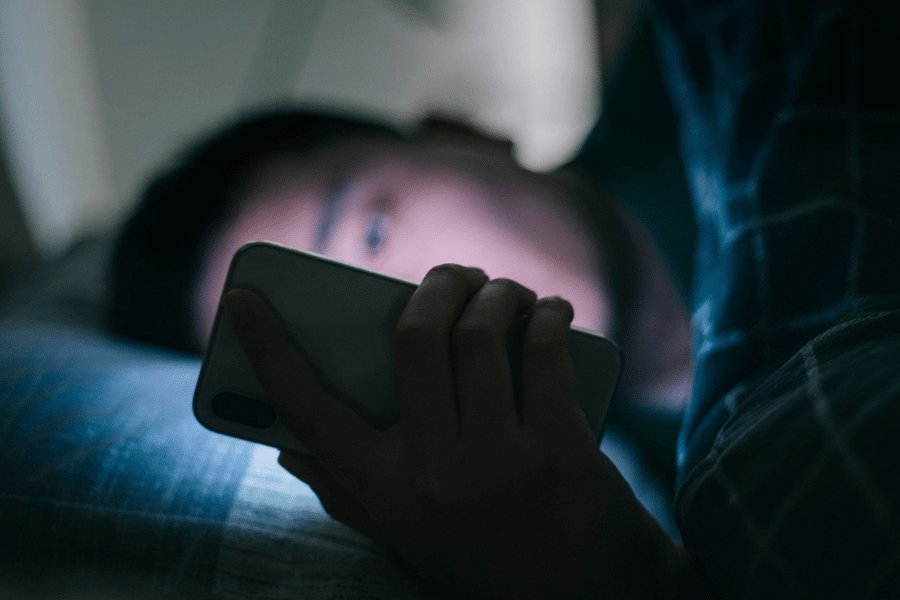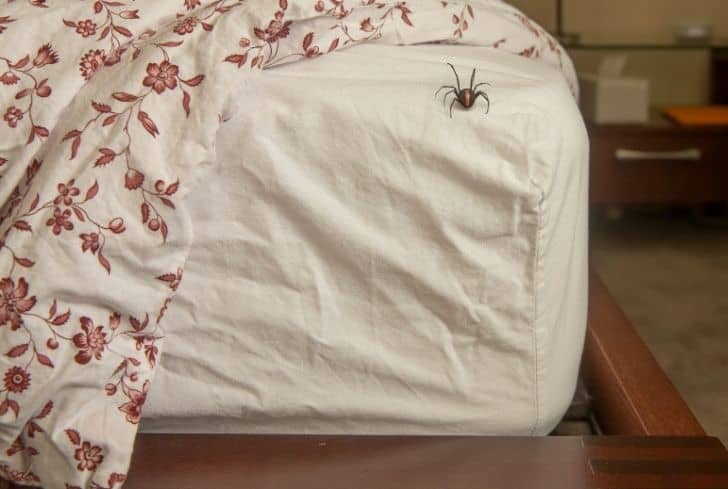

One of the most frustrating things anyone can suffer is being unable to sleep when they desire. Naturally, everyone wants to get some sleep after a stressful day at work but some factors can stop that from happening. When people don’t get sleep, they usually suspect many things, except food.
Of course, foods are meant to help the body but they can cause trouble too. For example, vitamins can cause insomnia in certain circumstances. You may not know the vitamins that keep you awake but that’s about to change. These vitamins are usually great but going over the recommended daily allowance (RDA) can have its side effects.
In this article, we’ll discuss how certain vitamins keep you awake and how you can prevent them from messing with your sleep. Read on to learn all about the relationship between vitamins and sleep.
Can vitamins keep you awake? The simple answer is yes, they can keep you away. However, how vitamins keep you awake is not that simple. Frankly, scientific evidence is hard to come by in terms of the relationship between vitamins and sleep. Notwithstanding, a few studies have revealed that vitamins affect sleep even though that’s not what many lovers of vitamins want to hear.
One of those studies which went far enough is published in the Journal of Sleep Medicine Trusted Source Vitamins and sleep: An exploratory study We analyzed archival data from an epidemiology study to test the association between vitamin use and sleep. www.sciencedirect.com . The study aimed to test the association between vitamin use and sleep. The research, which recorded 519 participants, revealed that individuals taking vitamins had poorer sleep compared to non-vitamin users in the number of awakenings during the night.
The study also found out that the rate of insomnia and consumption of sleep medication was significantly higher among persons taking vitamins compared to people who were not taking vitamins. It concluded that vitamin use was associated with disturbed sleep maintenance.
 Why does that happen?
Why does that happen?After the study identified that vitamins are associated with lack of sleep, it came up with some equally plausible explanations to explain this relationship. Firstly, the researchers argued that vitamin use causes disturbed sleep in some people.
Their second explanation says no single vitamin causes disturbed sleep. Rather, the interaction of some unknown combination of vitamins causes disturbed sleep according to the researchers. The study’s third explanation says people suffering from disturbed sleep are more likely to begin vitamin use.
Furthermore, the researchers posited that there is no causal link between vitamins and poor sleep. However, they argued that factors that encourage insomnia, such as anxiety and depression, invite vitamin use.
Conclusively, the study did not identify the reasons why vitamins make people who use them sleep worse than individuals who do not use them.
Unsurprisingly, the researchers, Kenneth L. Lichstein, Kristen L. Payne, James P. Soeffing, H. Heith Durrence, Daniel J..Taylor, Brant W. Riedel, and Andrew J. Bush, warned that the study was conducted to “stimulate a scientific dialogue” on the subject of vitamins and sleep Trusted Source Vitamins and sleep: an exploratory study We analyzed archival data from an epidemiology study to test the association between vitamin use and sleep. pubmed.ncbi.nlm.nih.gov , not to resolve the matter. They added that many questions remain unanswered.
Additionally, the researchers advised that more studies be done to understand the relationship between vitamins and sleep better. Notwithstanding, one could assume that using an inappropriate dosage of vitamins can cause disturbed sleep.
Even though it can be hard to believe that the vitamins you typically take to boost your health could be responsible for your lack of sleep, it’s the truth. That doesn’t mean you should jettison vitamin use but you’ll need to use it correctly. Hence, we’ll discuss how the supplements cause you to stay awake and provide you with recommended dosage for each vitamin.

Moreover, the main form of vitamin A in your blood is retinol, a fat-soluble carotenoid vitamin that’s essential to normal vision. Retinol is one of the vitamins responsible for the circadian rhythm—the “internal body clock” that regulates your 24-hour cycle of biological processes.
Furthermore, vitamin A prevents a range of issues, including night blindness, (throat, abdomen, and chest) infections, fertility issues, and delayed growth in children. Despite the obvious benefits of the vitamin, it can be toxic when consumed through supplementation or diet. It can build up to unsafe levels over time, leading to chronic hypervitaminosis.
Symptoms of chronic hypervitaminosis include raised intracranial pressure and blurry vision or other vision changes. These issues can affect sleep and keep you awake. The best way you avoid all of these troubles is to consume vitamin A within the recommended dosage.
The recommended dosage of Vitamin A varies based on age and sex. The dosage varies with pregnant and breastfeeding mothers too. The recommended daily dosage by children up to 6 months is 400 micrograms (mcg), 7–12 months: 500 mcg, 1–3 years: 300 mcg, 4–8 years: 400 mcg, 9–18 years: 600 mcg, 19-30 years: 900 mcg for males and 700 mcg for females.
During pregnancy, the recommended dosage is 770 mcg per day. On the other hand, breastfeeding is 1,300 mcg per day. You must always try not to go beyond the recommended dosage daily to avoid the side effects, including insomnia.

In case you didn’t know, vitamin B6, also known as pyridoxine, is not produced in your body. To gain from the vitamin’s many benefits, you must obtain it from supplements or foods. While the vitamin is essential for optimal health, it does affect sleep. One way it does that is to synthesize dopamine—a neurochemical that makes you feel alert and happy—in your body.
While dopamine boosts your mental health, it plays a role in keeping you awake against your wish. Furthermore, vitamin B6 helps the body metabolize glucose and store energy in fat. The more you take the vitamin, the more energy your body creates. This activity keeps you energized, alert, and inadvertently, awake.
Additionally, Vitamin B6 causes neuropathy—a disease of the peripheral nervous system—at intake of 1000 mg/day or more according to a study. This disease can unstable the nervous system, make you restless, and unable to sleep. So, does vitamin B6 keep you awake? Yes, it does.
However, if you aim to stay awake, do away with the caffeine and shop for a reliable vitamin B product such as the Mason Natural Vitamin B-6 that maintains healthy nerve function and doesn’t contain harmful preservatives and artificial colors or flavors.
Vitamin B6 can be toxic when the intake is beyond the right levels as we’ve explained above. The United States (US) health authorities set Trusted Source How much vitamin B6 is toxic? Vitamin B6 (pyridoxine) causes neuropathy at intakes of 1000 mg per day or more, which is about 800 times the daily intake from foods. pubmed.ncbi.nlm.nih.gov the moderate intake level at 200 milligrams (mg)/day and the safe upper limit at 100 mg/day. We recommend the safe upper limit to protect yourself adequately.

Besides, vitamin B12 is known to have the largest and most complex chemical structure of all the vitamins. Its unique nature lies in its metal ion, cobalt content. Hence, the term “cobalamin” is used to refer to compounds having the vitamin’s activity.
Furthermore, vitamin B-12 is essential to the normal function of the brain as well as the nervous system. Plus, it’s heavily involved in the creation of red blood cells, providing your brain with more oxygen and more alertness. The vitamin is usually found in meat but since vegans won’t be able to get it from there, they acquire it through supplements.
Although no study has shown that the excessive intake of vitamin B12 is toxic, using the supplements unregulated can energize you too much, to the extent that you’re kept alert and unable to sleep. So, can vitamin B12 cause insomnia? There you have, it can when used excessively.
However, if you wish to stay awake or you simply want the health benefits of the vitamin, the 2-ounce Nature’s Answer Liquid Vitamin B-12 can be the right product to opt for thanks to the presence of Quik-Sorb—a blend of herbs known to boost the delivery of nutrients to the body. And the product provides a suggested dosage.
As we mentioned earlier, vitamin B12 hasn’t been shown to be toxic. However, it’s best to regulate the consumption to ensure optimum safety, hence the recommendation of the US National Institutes of Health (NIH). The agency recommends that teens and adults more than the age of 14 years should consume 2.4 mcg of vitamin a day.
Meanwhile, if you’re a pregnant woman, you can consume 2.6 mcg while lactating women can consume not more than 2.8 mcg. If you want to use beyond the recommended dosage, then we advise that you consult your physician.

Besides, vitamin C is plentiful in citrous fruits and vegetables. Also, it’s present in supplements that people typically use excessively. Anyway, there’s hardly anything to fear because the vitamin C doesn’t stay in the body, hence the need to consume it every day to gain its benefits.
Moreover, your body needs vitamin C to efficiently convert food and drinks into energy. Specifically, it is involved in energy-yielding metabolism. However, some scientists disagree that the vitamin is involved in energizing the body. While there may not be a consensus on whether vitamin C provides extra energy, a study established that the vitamin reduces fatigue Trusted Source Intravenous vitamin C administration reduces fatigue in office workers: a double-blind randomized controlled trial Studies of the efficacy of vitamin C treatment for fatigue have yielded inconsistent results. pubmed.ncbi.nlm.nih.gov .
Naturally, fatigue pushes you to sleep but when excessive consumption of vitamin C reduces the condition significantly, you’re bound to stay awake. With your fatigue gone, there will be less motivation to get some sleep.
Whether you’re looking to stay up or enjoy the numerous benefits of vitamin C, the best thing for you might be to invest in an effective variant like the Nature Made Vitamin C that boasts pure ingredients and doesn’t contain artificial colors, artificial flavors, preservatives, chemical solvents, gluten, or yeast.
Surely, the body needs a lot of vitamin C. Although it’s nearly impossible to have too many vitamins because your body flushes the excess quickly, it’s still important to consume a safe dosage. Daily, men require around 90 mg of vitamin C while women require around 75 mg.

In terms of sleep disturbance, a case can be made for vitamin D as the guiltiest vitamin. The vitamin is heavily involved in sleep, both negatively and positively. For example, low doses of vitamin D can cause sleep disorder but high doses are not without their trouble.
According to a study, growing evidence suggests Trusted Source Vitamin D and Sleep Regulation: Is there a Role for Vitamin D? - PubMed Vitamin D exerts multiple pleiotropic effects beyond its role in calcium-phosphate metabolism. pubmed.ncbi.nlm.nih.gov that there’s a relationship between hypovitaminosis D (excessive vitamin D in the body) and sleep disorders. Unsurprisingly, this relationship increases the interest in the role this vitamin plays in the regulation of the sleep-wake cycle.
Normally, you don’t need a supplement for vitamin D because the amount you get from the sunlight is usually enough. However, if you’re asked to take more through supplements, chances are that you may go beyond the recommended dosage. With your body dealing with excess vitamin D at bedtime, it may keep you awake.
As I mentioned before, the body doesn’t need a lot of vitamin D. The recommended dosage is 15 mcg per day. This dosage only applies if you’re taking supplements because there’s no way you get too much of the vitamin from exposure to the sun.

Besides, vitamin K is essential in helping blood clot. This activity helps prevent excessive bleeding. Hence, low levels of vitamins can increase the risk of bad bleeding. Even though the body doesn’t need a lot of vitamin K, some take too much of its supplements and report a stress reaction.
However, no study has confirmed if indeed, vitamin K causes a stress reaction. If the claim is valid, the stress reaction could affect sleep and keep you awake. Unfortunately, we can’t be firmer on this because most studies have focused on the health benefits of the vitamin and have ignored exploring the relationship between the vitamin and sleep.
The recommended daily dosage is 2 mcg for children up to 6 months, 2.5 mcg for children 7 – 12 months, 30 mcg for children 1 – 3 years, 55 mcg for children 4 – 8, 60 mcg for children 9 – 13 years, 75 mcg for girls and boys 14 – 18 years, 90 mcg for women 19 years and up, 90 mcg for pregnant and breastfeeding women (19 – 50 years), and 120 mcg for men 19 years and up.
After exploring the vitamins that can keep you awake, let’s discuss the supplements that provide better sleep below:

However, vitamins such as A, B6, B12, D, and others that we discussed up there, could combine to keep you up. So, it’s up to you to combine the right vitamins for your supplement. For example, we know that vitamin D deficiency can cause sleep disorders. The right dosage of the vitamin naturally enhances good sleep. Surely, it won’t hurt to have it in your multivitamins.
Frankly, taking multivitamins at night can be problematic. If the supplement doesn’t contain the right vitamins, you could find yourself staying up all night. Instead, take your multivitamins in the morning when your body naturally absorbs supplements better. Overall, multivitamins can provide better sleep once they contain the right vitamins and you use them correctly.

Besides, sleep deprivation can have adverse health effects. For example, it can affect your memory. When you sleep, the brain usually processes newly acquired learning and memories. In the absence of sleep, you can be faced with issues around short- and long-term memory. However, the introduction of vitamin E can protect the brain and keep it functioning optimally.
Moreover, some studies have indicated that vitamin E might provide specific protection against sleep loss-induced memory impairment. This protection is huge in terms of sleep. Also, the vitamin fights restless leg syndrome, a condition that forces you to move your legs and is known to disrupt sleep. Hence, by using vitamin E to get rid of the syndrome, you can make your sleep better.
Individuals up to 14 years and above, including pregnant women, can take 15 mg of vitamin E. However, breastfeeding women can take up to 19 mg of the vitamin.
Meanwhile, you don’t have to rely solely on vitamins to get better sleep. Your poor sleep might just be a result of your bad pillow. Why don’t you get yourself the best king-size pillow around? This sort of pillow should provide your back and neck with an incredibly comfortable rest.
If you think you already have a comfortable mattress, fair enough, but you could do with a high-quality weighted blanket. This type of blanket uses pressure therapy to make you feel held and it helps people suffering from sleep disorders.
While you enjoy your sleep, it’s best to track it too so that you can tell how healthy it has been. What better way to do that than buying yourself the best sleep tracker that promises excellent tracking and great battery life?
Vitamins can be good and they can be bad as this article has made clear. While some of them can keep you awake, others can provide you with better sleep. Being deprived of sleep can be quite frustrating and it can be more frustrating to learn that the supplements you use to improve your health are responsible for your unwanted situation.
However, it goes both ways; you may need supplements to stay awake. In this case, you’ll have to use vitamins that keep you awake but don’t use them beyond the recommended dosage as we’ve provided. If you want better sleep, we advise that you opt for vitamins that don’t induce sleep or more preferably, choose vitamin E.





